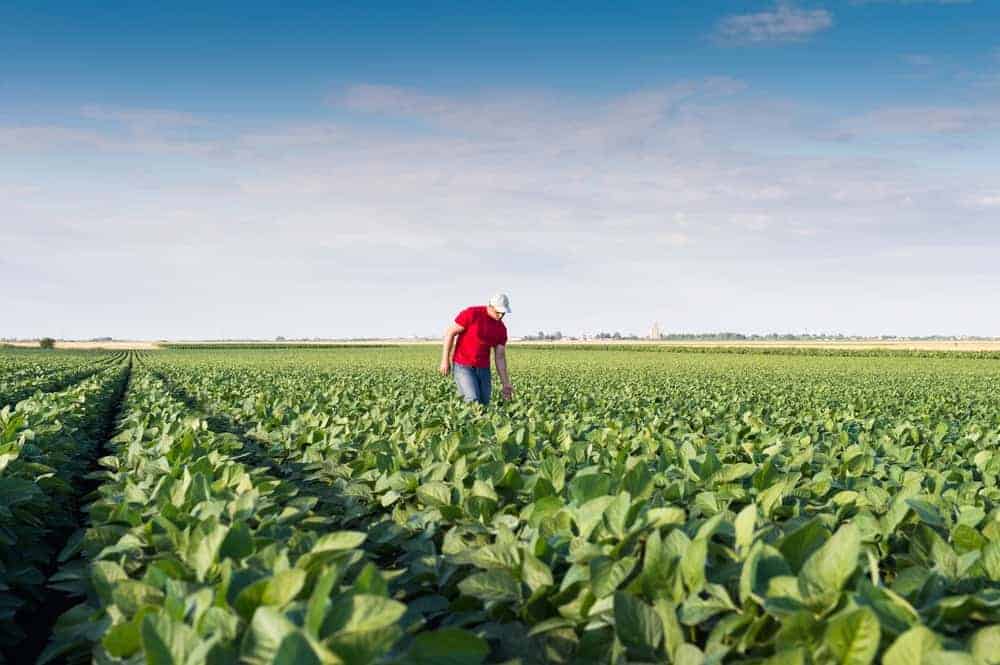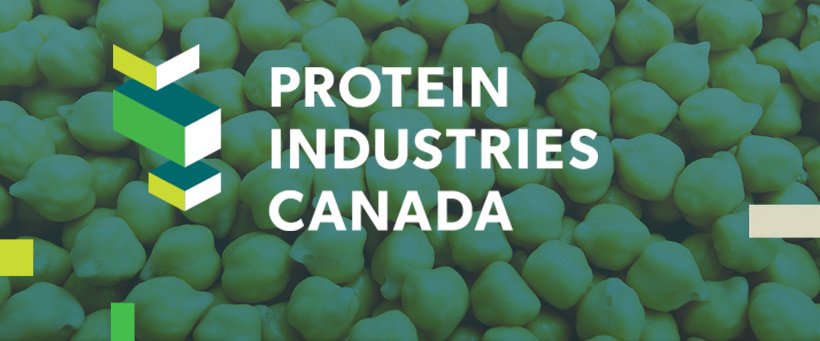Die in diesem Beitrag aufgeführten fünf Unternehmen stellen Proteinisolate auf Ackerbohnenbasis für pflanzliche Alternativen und andere Lebensmittelprodukte her.
Hülsenfrüchte werden zunehmend als Eckpfeiler einer pflanzlichen Ernährung anerkannt und die Ackerbohne gilt als äußerst nahrhaft, da sie 18–35 % Protein sowie Lysin, Eisen, Mangan, Magnesium, Phosphor und einen hohen Anteil an Folsäure enthält. In diesem Jahr entdeckten Wissenschaftler der Universität Helsinki auch eine neue Ackerbohnenmischung für die Herstellung von pflanzlichem Fleisch.
Die Pflanze Vicia faba und ihre Bohnen werden für ihre gesundheitlichen Vorteile und ihre Umweltverträglichkeit gelobt. Diese Pflanzen binden auf natürliche Weise Stickstoff im Boden, wodurch der Einsatz von Stickstoffdüngern überflüssig wird und sie sich ideal für den Fruchtwechsel eignen. Sie sind außerdem gegenüber vorübergehenden Überschwemmungen toleranter als Linsen oder Erbsen.
Die folgenden Unternehmen haben Millionen investiert, um die Nährstoffe dieser Bohnen, einer der ältesten von Menschen verzehrten Hülsenfrüchte, zu erschließen und Innovationen auf der Basis von Ackerbohnen voranzutreiben.

1. Roquette
Einer der führenden Anbieter von pflanzlichen Zutaten, Roquette, wird auf der Food Ingredients Europe (FiE) 2024 in Frankfurt das NUTRALYS Fava S900M vorstellen, ein zu 90 % proteinreiches Ackerbohnenproteinisolat.
NUTRALYS Fava S900M soll eine überlegene Funktionalität und Vielseitigkeit bieten. Es hebt sich von anderen Pflanzenproteinen durch seine hohe Gelfestigkeit, Viskositätskontrolle und Stabilität unter verschiedenen Bedingungen ab. Es hat vielfältige Einsatzmöglichkeiten in pflanzlichen Lebensmitteln: Milchprodukte, Hähnchen- oder Fischalternativen, trinkfertige Joghurts und Backwaren.
Am Stand von Roquette können die Besucher ein proteinreiches, pflanzliches Dessert probieren, das mit dem neuen Fava-Bohnen-Protein hergestellt wurde. Zu den weiteren Prototypen, die die NUTRIOSE-Fasern und andere NUTRALYS-Proteine des Unternehmens enthalten, gehören ein herzhafter Tomaten-Feta-Kräuter-Kuchen, pflanzliche Tacos mit ballaststoffreichen Tortillas und DHA-Gummibonbons auf Algenbasis mit Zitronengeschmack für die Aufnahme von Omega-3-Fettsäuren.

2. Bunge
Bunge hat Erbsen- und Fava-Proteinkonzentrate eingeführt, um seine bestehende Produktlinie von Sojaproteinkonzentraten zu ergänzen. Die neuen Zutaten sollen gentechnikfrei, hell und fein pulverisiert sein und einen Proteingehalt von 55 bis 70 % auf Trockenbasis aufweisen. Sie eignen sich für verschiedene Lebensmittelanwendungen und erhöhen den Proteingehalt bei allergenfreier Kennzeichnung.
Golden Fields, ein Agrarunternehmen und führender Trocknungsbetrieb für Erbsen und Ackerbohnen in Europa, wird in einer neu errichteten Fabrik in Liepaja, Lettland, exklusiv für Bunge produzieren. Laut Bunge basiert der Produktionsprozess auf Fruchtfolgeverfahren und Trockenfraktionsmethoden, die weder Wasser noch Lösungsmittel erfordern. Darüber hinaus liefert ein Netzwerk lokaler Landwirte aus der gesamten Region die Einsatzstoffe, wodurch die Transportemissionen reduziert werden.

3. Lantmännen
Die schwedische Genossenschaft Lantmännen kündigte die Errichtung einer neuen Erbsen- und Ackerbohnenprotein-Anlage im schwedischen Lidköping an, die 1,2 Milliarden SEK (105 Millionen EUR) kosten wird. Die Anlage soll im zweiten Quartal 2027 in Betrieb genommen werden und kann jährlich 7.000 Tonnen Erbsen- und Ackerbohnenproteinisolate produzieren, um die wachsende Nachfrage nach nahrhaften pflanzlichen Lebensmitteln zu decken.
Mit einer Produktionsfläche von 5.300 Quadratmetern wird die Anlage voraussichtlich jährlich etwa 5.000 Tonnen Ackerbohnen und 35.000 Tonnen Erbsen verarbeiten. Die Anlage wird direkt etwa 30 neue Arbeitsplätze schaffen, zusätzlich zu Hunderten von weiteren Beschäftigungsmöglichkeiten während der Bauphase der Anlage.
4. Wide Open Agriculture
Das australische Unternehmen Wide Open Agriculture hat sein firmeneigenes Extraktionsverfahren angepasst, um Erbsen- und Ackerbohnenproteinisolate herzustellen. Die Technologie von WOA wurde ursprünglich zur Herstellung eines Lupinenproteinisolats namens „Buntine Protein“ entwickelt.
Die neuen Isolate wurden im Forschungs- und Entwicklungslabor von WOA entwickelt und zielen auf eine verbesserte Gelfestigkeit, Löslichkeit und reduzierte Viskosität im Vergleich zu herkömmlichen Proteinisolaten ab. Das Unternehmen bietet die neuen Zutaten direkt der Lebensmittelindustrie an und bietet Auftragsfertigungsdienstleistungen für europäische Hersteller von Erbsen und Ackerbohnen an.

5. Protein Industries Canada
Protein Industries Canada kündigte im Juli dieses Jahres ein neues 7,7 Millionen Dollar schweres Projekt an, um die Entwicklung von Erbsen- und Fava-Protein-Zutaten für pflanzliches Fleisch und andere Lebensmittel voranzutreiben.
Die Konsortialteilnehmer Lovingly Made Flour Mills, TMRW Foods und Dutton Farms werden sich auf die Optimierung der Zutatenverarbeitung und die Entwicklung von Fleischalternativen mit verbesserter Erschwinglichkeit, Nährwert und Konsistenz konzentrieren.
Das Projekt zielt darauf ab, den Wert der kanadischen Erbsen- und Fava-Ernten zu steigern und eine Wertschöpfungskette zu schaffen, die die heimische Industrie für die Herstellung von Zutaten stärkt und neue wirtschaftliche Möglichkeiten für Kanada erschließt.
„Projekte wie dieses erweitern das Angebot und die Vielfalt pflanzlicher Produkte sowohl hier in Kanada als auch im Ausland und unterstützen gleichzeitig eine größere Auswahl an gesunden, nachhaltigen Lebensmitteln für Verbraucher“, erklärte François-Philippe Champagne, Minister für Innovation, Wissenschaft und Industrie.
Jetzt vegconomist+ Unterstützer:in werden!
vegconomist publiziert unabhängig von großen Verlagen. Ihre Unterstützung hilft uns dabei, auf vegconomist.de frei zugänglich für alle zu bleiben.
>>> Jetzt unterstützen







